NRL
A man with $5 in his pocket
To know me, first you’ve got to know my family.
My grandfather Roy Alvaro – or Nonno as we call him – came out here from Italy as an 18-year-old in 1958 on a ship called the Roma. He left Sinopoli, the little village in the province of Reggio Calabria where the Alvaro family lived, with a suitcase and the equivalent of four or five dollars in his pocket.
Nonno had heard great things about Australia from his older brother, Frank, who’d already been out here for just over a decade.
Frank got married to Rosina back home in Italy and, after a month as husband and wife, he headed for Australia on his own with the aim of working hard to set things up for the family he and Rosina planned to have. If you were on your own and it didn’t work out, you could easily go back to Italy. It was much harder to turn around if you’d brought the whole family out.
Rosina was already pregnant when Frank left. They had a daughter, Theresa, but Frank didn’t see her for the first time, or Rosina again, until the two of them came out to join him almost a decade later, in 1957.
Frank had his family were settled by the time Nonno came out to Australia. They welcomed him into their home in the inner-western Sydney suburb of Burwood. Nonno says Frank and Rosina treated him like their own son.
Building was in the family blood. Roy’s dad, Giuseppe, my great-grandfather, was a stonemason around the villages. Roy says Giuseppe and his brother, Tony, were the best stonemasons in the region.
Nonno finished school when he was 11. There was no high school in Sinopoli. There was a primary school and that was it. He started work in the building industry before he had even turned 12 and at 14 he moved north to get more work, first in Turin and later Milan.
I can understand it when my grandfather says, ‘You grow up quickly in Calabria’.
Nonno says the building industry in Italy was like a closed shop. The big companies were entrenched and it was going to be hard for him to break through there with a company of his own. Plus, in some of the villages where he worked, the people were very poor and struggled to pay him anything.
Frank had told him it was different in Australia, a lot more open, a real land of opportunity if you were prepared to knuckle down and work hard.
He thought he’d try it for three months and see what happened. He got a job in the building industry straightaway and, three days after arriving in Sydney, he started work. Sixty years later, he’s still here and has never regretted the move.
Nonno says he loves Italy, but loves Australia even more.
A FAMILY WORK ETHIC
Five months after arriving in Australia, and having just turned 19, my grandfather started his own business – Roy Alvaro Building Contractors. They did a bit of everything and did it well.
Nonno gradually encouraged some of his other brothers out from Italy to work for him – Nick, Tony and Dominic. He convinced his sister, Teresa, to come over as well as his mum, Antonia, and Giuseppe in 1975. Nonno wanted them to enjoy the rest of their lives in comfort.
He met an Australian woman, Wendy, who would become my Nana, and they had five kids: two girls and three boys, including my dad, Vince.
In the early 1980s, he established Alvaro Homes. They built luxury residences and won a lot of Master Builders Association awards. The company is still going today, even though he has retired.
My Dad is a builder as well and, from five years old, I’d go to work with him whenever I was on school holidays. When I was that young I was just kicking around and watching, but pretty soon I started doing little things to help out. Fetching things, holding tools for tradesmen, that sort of stuff. The older I got, the more Dad would let me do.
Any work ethic that I have has come through from my Dad and granddad. As I grew older, they started encouraging me to get involved in the building industry when I left school. They didn’t have to push that idea on me. I loved being around it.
But I loved my footy as well and having the opportunity to make a living out of it was something I was going to grab with both hands.
I actually started off playing soccer when I was six, but even my Italian blood couldn’t help me there. I was no Alessandro Del Piero. I was useless at it. Dad put me in footy when I was eight and that was it for me.
We were living in the Southern Highlands and I was playing for the Mittagong Lions, where there was a Brisbane Broncos scout in our area. When I was 15 he got me into their development system and I started flying up there to play in junior representative competitions on weekends.
I started off playing soccer when I was six, but even my Italian blood couldn’t help me there. I was no Alessandro Del Piero.
After I finished school I went up there to play for the Broncos in the Holden Cup under-20s competition. My mum, Dana, and Dad moved up there as well to look after me. They liked it so much they ended up staying there for good.
But I preferred living back down in NSW and, even though Mum and Dad were with me in Brisbane, I felt homesick. So I headed back down south and was lucky enough to get the opportunity at Parramatta, where I played my last year of Holden Cup.
Eventually, I broke into the first-grade squad at the Eels and made my first-grade debut on May 29, 2015. It’s not a hard date for me to remember, because it was the day after my 22nd birthday. I’ve been at Parra ever since and I’m there until the end of next season at least.
I do my best to bring a hard-work ethic into my footy. My role in the team is to get through as much work as possible, whether that’s taking the ball up or making tackles.
My dad was either the coach or one of the trainers in every junior team I played in for a decade. He drilled it into me to not just have dreams, but to work hard to make them come true.
Because that was the only way it would happen.

STUDYING ON THE JOB
Footy is massive for me. I played it as a kid because I loved it and now I’m doing it for a living, it doesn’t feel like a job. I love coming in every day and seeing my mates at training and then playing on the weekend. I couldn’t think of a better lifestyle.
But it doesn’t last forever and I’m glad I’ve got another passion I can work on.
I’ve been doing a Construction Project Management course part-time at UTS in Sydney for a couple of years now.
You’ve got to do 200 days of practical experience on a building site to go with the theory. Some guys do it full-time and knock it over pretty quickly, but with footy it’s hard. I’m doing as much as I can every week and spreading it out over a longer period.
It’s a four-year course full-time and it’ll probably take me another four or five years at the rate I’m going, but that doesn’t bother me while I’m playing footy. I just work it around my training and playing commitments.
Last year I started working at Richard Crookes Constructions, who have really helped me get experience and allowed me to fit it in with my footy.
I go in basically as an intern, which can be hard one day a week as I can’t be given day-to-day continuous tasks, but I just try to get involved in whatever’s going on and help out where I can.
Last year, I worked on a private mental health facility in Artarmon and I’m now working on a large retail and residential development project in Circular Quay. It’s a massive build and it’s pretty exciting to be a part of it, even if I’m just on the fringes.
The thing I really appreciate is that the workers at all levels want to help me, so I’m getting the knowledge. I don’t care about doing it on days off from footy. What I’m learning is invaluable.
I’m not sure exactly what I want to do within the building and construction industry after I graduate. I’m leaning towards management, but I want to try a bit of everything first and would like to get on the tools for a bit at some stage.
I know I would feel much more competent in telling people what to do if I’ve had personal experience doing what they’re doing.
CONSTRUCTION VS FOOTY
There are similarities between the process at a building site and how a footy team works.
In both cases, there are routines and systems that have to be adhered to or things go haywire. Little mistakes can end up proving costly. The more efficient you are, the better the result is going to be.
You’re working with a group and there is a precise plan that includes patterns you must follow. If you go against the grain, you’re going to make things come apart.
I know I would feel much more competent in telling people what to do if I’ve had personal experience doing what they’re doing.
I’ve watched houses being built and the stronger your foundations are, the clearer your process is and the greater the understanding among everyone involved, the smoother the job goes.
You can’t have uncertainty. You can’t have people not following instructions. That’s what leads to breakdowns along the line.
In the building industry, it can mean ripping a whole wall down and starting again because the plastering’s been done before all the services have been installed. In footy, it can be a split-second moment of hesitation in defence that leads to someone making a break and scoring a try.
Failure to communicate is a killer. You’ve got to know your role and work together to achieve a successful outcome. If you make a mistake, you’ve got to be accountable and get it right the next time. If you keep stuffing up, you’re gone, which is how it should be.
NONNO’S BRAVE BATTLE
My grandad is a pretty amazing person. He showed the way for the Alvaro family in Australia and provided all of us with a lesson on how to prosper.
I’m lucky I’ve got great inspirations like my parents and grandparents – people who want me to do well and have done their best to make it happen by teaching me the right way to go about things. I’m super-tight with my dad and my grandad.
But there’s even more to Roy than what I’ve already revealed. He’s actually a bit of a miracle man.
Life has thrown some enormous challenges at him in his 70s. He’s had a stroke, a heart attack, a bad lung infection he still battles, and a bout of leukaemia. He’s on daily medication for the rest of his life to hopefully keep that from recurring.
Plus, he has had four operations to remove brain tumours and he’s about to undergo a fifth at the age of 78. He says his surgeon tells him there’s no explanation for why that keeps happening.
I’m not making any of this up.
Nonno and Wendy live on a big property at Bowral and despite all of this he can’t be kept off his tractor mower, cutting the grass himself.
He says he’s still alive because he likes that a lot better than the alternative. He’s got a wonderful family and he’s not ready to go yet.
I hope he sticks around for a lot longer.
More about: Brisbane Broncos | Parramatta Eels
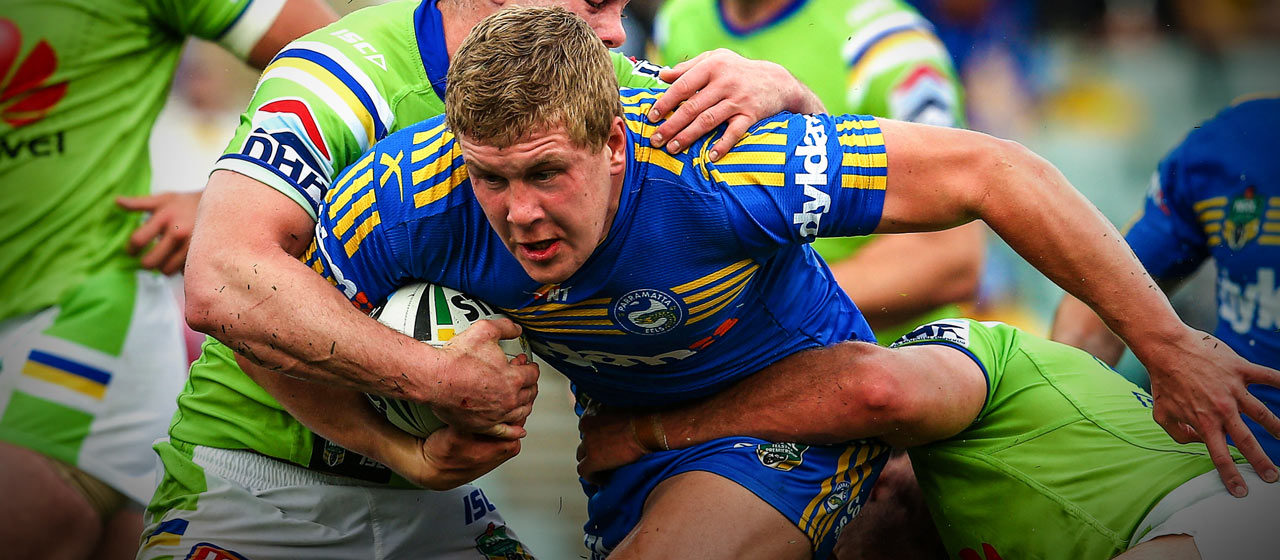
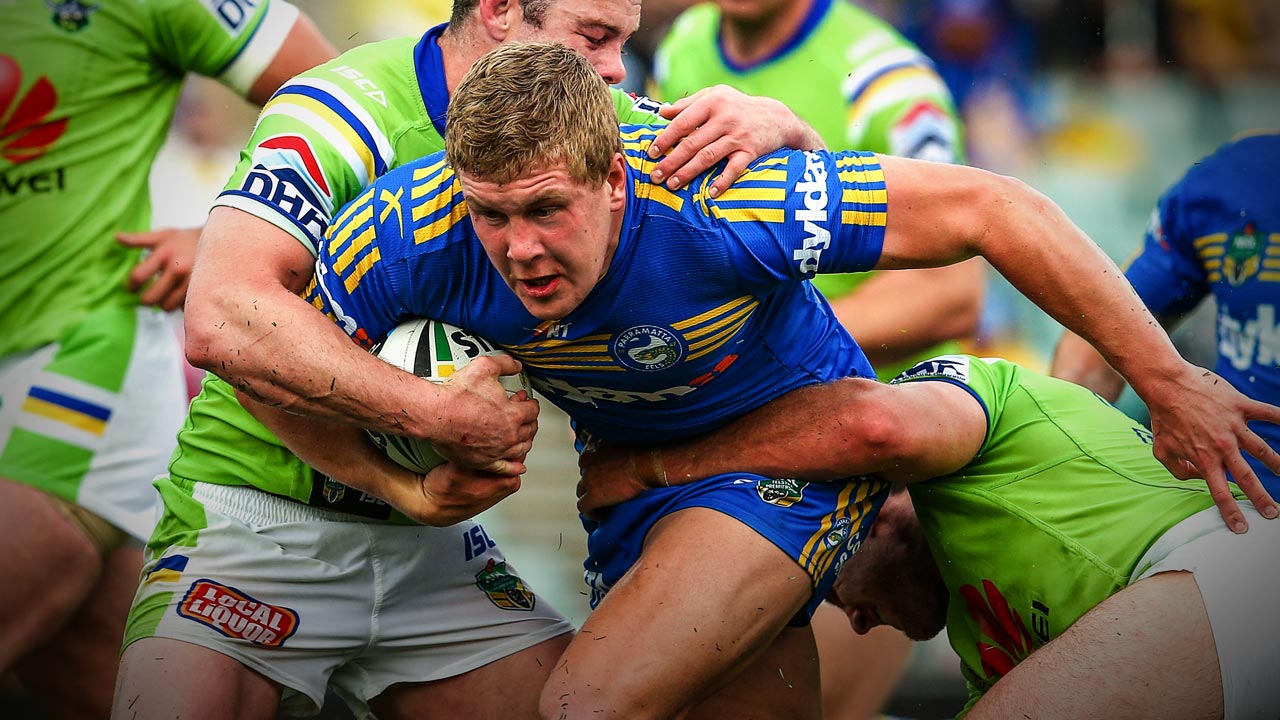

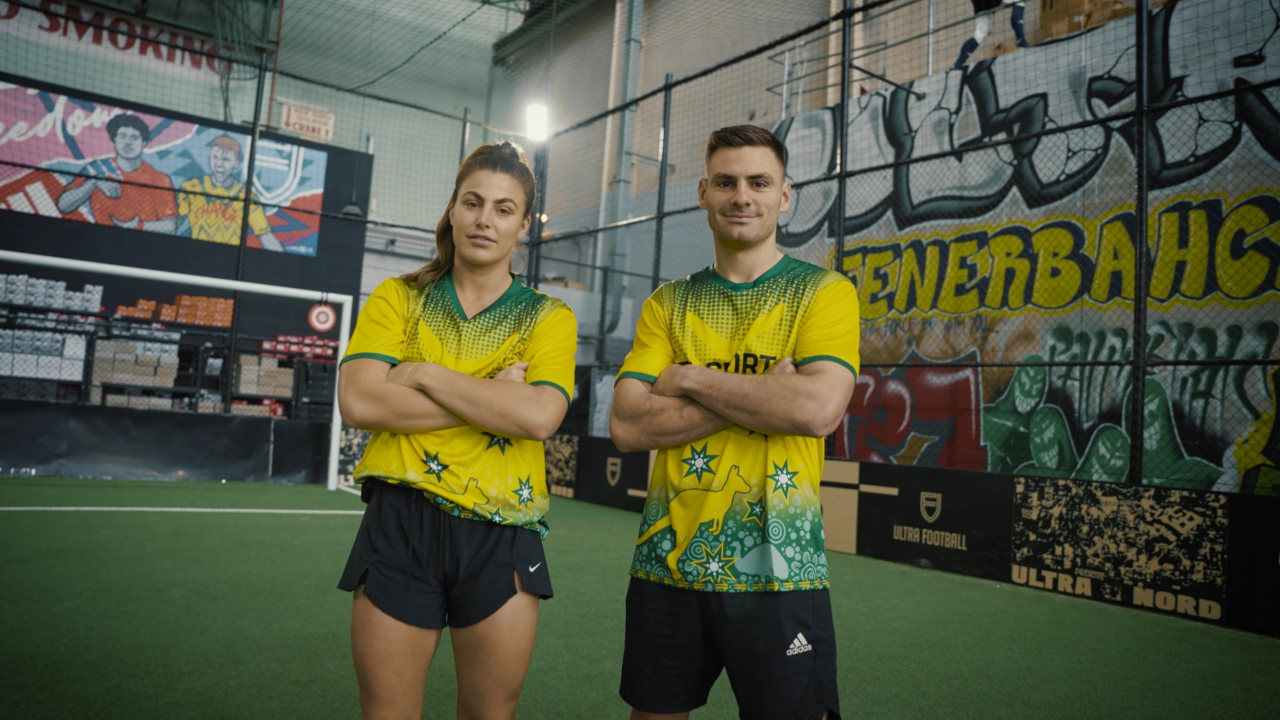
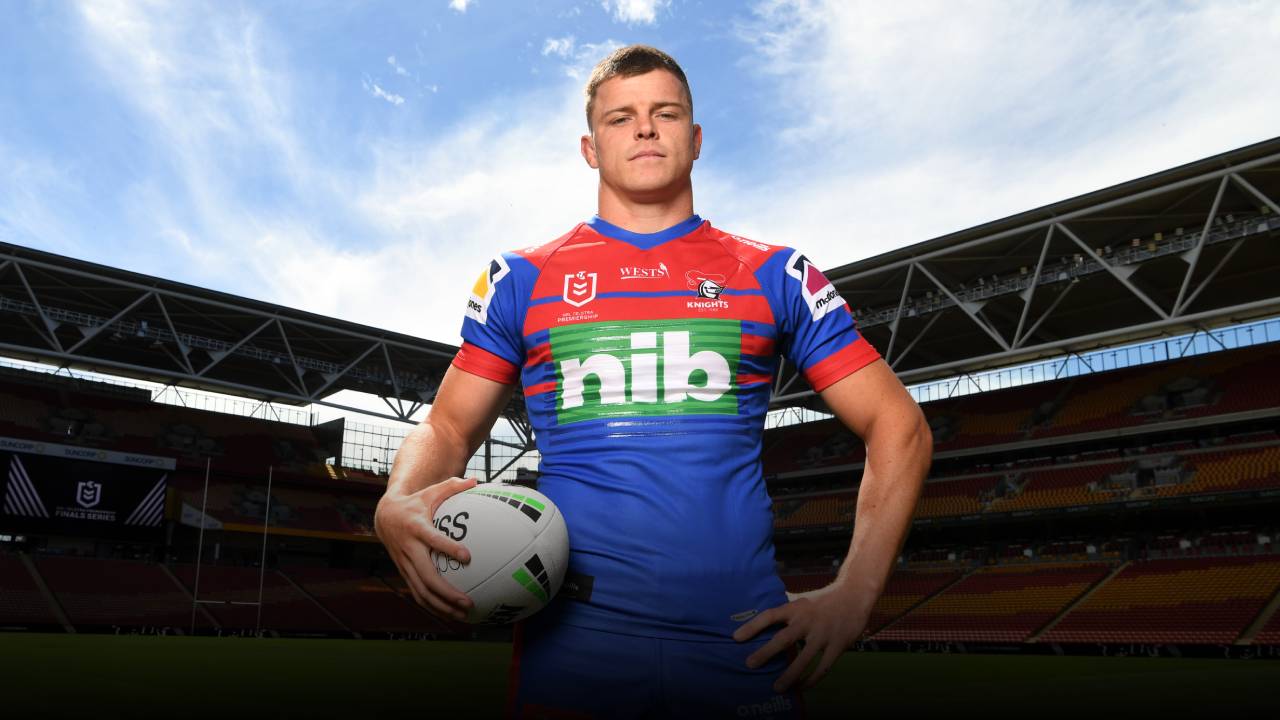
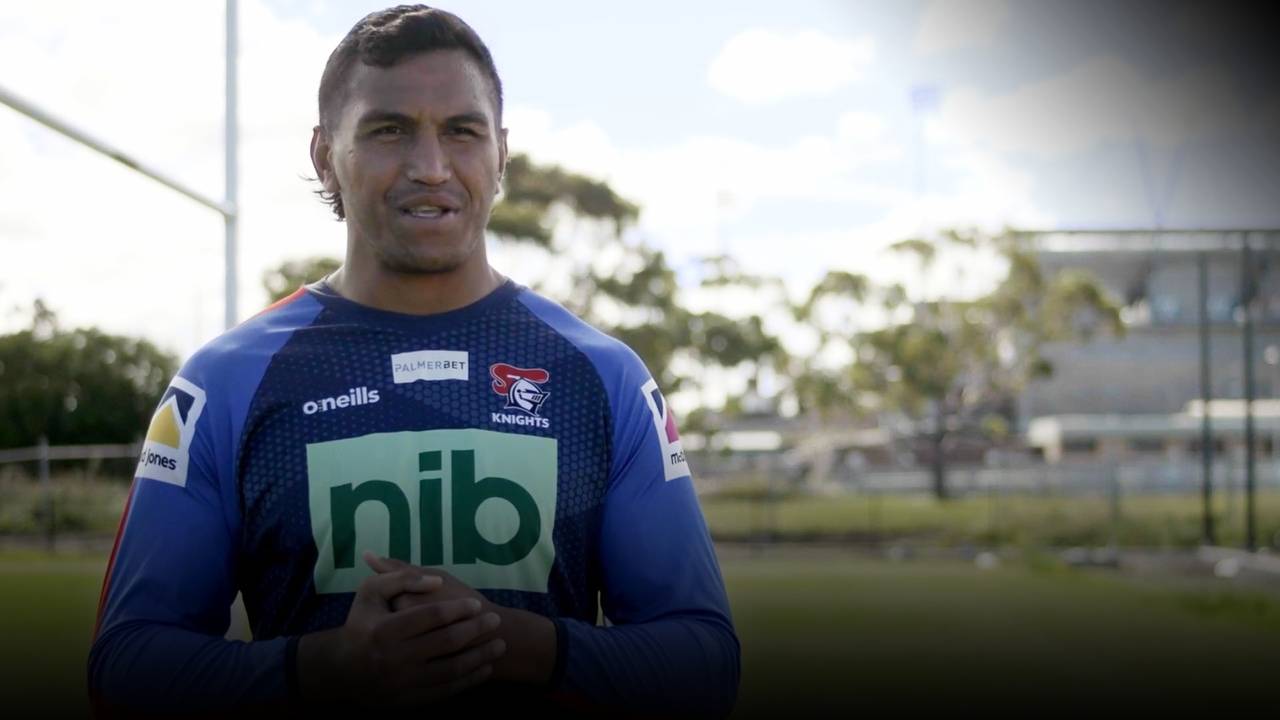
 Load More
Load More